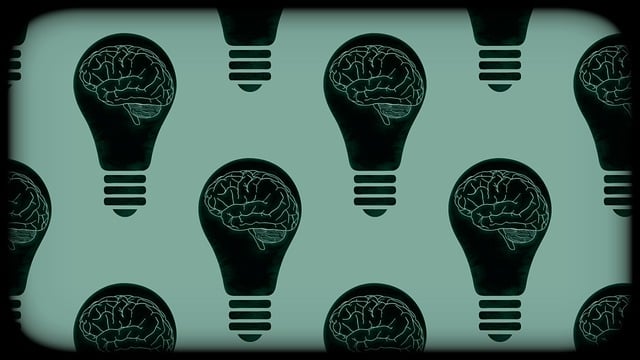Public awareness campaigns and educational initiatives play a key role in preventing substance abuse by demystifying Golden Drug Abuse-Substance Abuse Therapy, breaking stigmas, and promoting informed decision-making. Integrating self-care and social skills training enhances community resilience, while outreach programs foster a culture of care and prevention. A multifaceted approach using engaging narratives, visual media, and stress reduction techniques empowers individuals to make informed choices and seek help. Evaluating campaigns through robust methods considering cultural sensitivity ensures their effectiveness in addressing substance abuse and promoting holistic mental health care.
Public awareness campaigns play a pivotal role in addressing critical global issues, particularly Golden Drug Abuse-Substance Abuse Therapy. This article delves into the multifaceted development of such campaigns, focusing on education as a key strategy in prevention. We explore effective campaign crafting techniques to combat drug abuse and emphasize the importance of measuring impact for successful substance abuse therapy initiatives. By understanding these elements, we can create impactful programs that significantly reduce Golden Drug Abuse.
- Understanding Public Awareness: The Role of Education in Substance Abuse Prevention
- Crafting Effective Campaigns: Strategies to Combat Drug Abuse
- Measuring Impact and Success: Evaluating Public Awareness Campaigns for Substance Abuse Therapy
Understanding Public Awareness: The Role of Education in Substance Abuse Prevention

Public awareness campaigns play a pivotal role in substance abuse prevention, especially when coupled with educational initiatives. By fostering understanding and empathy, these campaigns can demystify Golden Drug Abuse-Substance Abuse Therapy, breaking down stigmas that often prevent individuals from seeking help. Education serves as a powerful tool to equip people with knowledge about the risks and consequences of drug abuse, promoting early intervention and better decision-making.
Self-Care Practices and Social Skills Training can be integrated into these educational efforts. Teaching community members about healthy coping mechanisms and social dynamics helps build resilience against substance abuse. Community Outreach Program Implementation is also enhanced when residents are informed about available resources and support systems, encouraging a culture of care and prevention where everyone plays a part in identifying and assisting those struggling with addiction.
Crafting Effective Campaigns: Strategies to Combat Drug Abuse

In crafting effective public awareness campaigns to combat drug abuse, a multifaceted approach is essential. Educational initiatives should focus on dispelling myths and providing accurate information about Golden Drug Abuse-Substance Abuse Therapy, emphasizing its availability and accessibility as a viable treatment option. Engaging stories and personal narratives can humanize the issue, fostering empathy among the general public. Visual media, social campaigns, and community events play a significant role in reaching diverse audiences, especially younger demographics often more susceptible to peer influence.
Integrating Stress Reduction Methods, Emotional Healing Processes, and Conflict Resolution Techniques into these campaigns can offer alternative coping strategies for at-risk individuals, addressing underlying issues that may contribute to substance abuse. By presenting comprehensive solutions alongside awareness, these campaigns not only inform but also empower individuals to make informed choices, seek help when needed, and navigate challenges without resorting to harmful substances.
Measuring Impact and Success: Evaluating Public Awareness Campaigns for Substance Abuse Therapy

Evaluating the impact and success of public awareness campaigns for substance abuse therapy is a critical step in understanding their effectiveness. Measuring outcomes goes beyond simply counting the number of people who recognize the campaign or recall key messages. It involves delving into how this increased awareness translates into action, such as seeking help or making positive behavioral changes related to Golden Drug Abuse-Substance Abuse Therapy. By employing robust evaluation methods, including surveys, interviews, and tracking help-seeking behaviors, campaigns can identify what works well and pinpoint areas for improvement.
This process is further enriched by considering cultural sensitivity in mental healthcare practice, as campaigns must resonate with diverse communities while avoiding stereotypes or misrepresentations. Conflict resolution techniques can also play a role in understanding how these initiatives address sensitive topics related to substance abuse, fostering open dialogue and encouraging participation. Additionally, evaluating success includes assessing the campaign’s contribution to depression prevention efforts, as addressing underlying mental health issues is integral to comprehensive substance abuse therapy.
Public awareness campaigns play a pivotal role in addressing Golden Drug Abuse by educating communities and fostering a culture of substance abuse therapy. Through strategic messaging, collaboration with experts, and robust evaluation methods, these campaigns can significantly impact prevention and treatment. By understanding the needs of diverse audiences and employing creative strategies, we can create a more informed and supportive society for those battling substance abuse, ultimately leading to improved health outcomes and enhanced quality of life.









